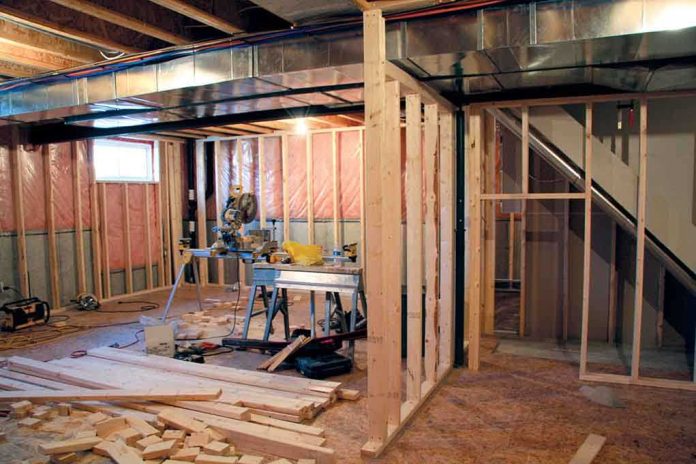
Home improvement projects can easily spiral out of control, leaving homeowners with empty pockets and unfinished dreams.
Story Overview
- Budget overruns and delays are common pitfalls in home improvement projects.
- Key mistakes include underestimating costs, bypassing permits, and hiring unreliable contractors.
- Expert-backed strategies focus on planning, budgeting, and regulatory compliance.
- A comprehensive approach to risk mitigation is crucial for successful renovations.
Avoiding Budget Overruns
Home renovations often exceed budget expectations due to underestimation of costs. Setting a realistic budget that includes all potential expenses is crucial. Experts recommend adding 10-15% to the initial budget for unforeseen expenses. This contingency fund can help cover unexpected issues like structural problems or rising material costs, ensuring the project stays on track financially.
Proper planning is another vital step in avoiding costly mistakes. Before starting any project, homeowners should define the project scope, desired features, and necessary permits. Detailed planning helps prevent misunderstandings and ensures that every aspect of the renovation aligns with the homeowner’s vision and budget.
Hiring Reliable Contractors
Choosing the right professionals for the job is essential. Homeowners should thoroughly vet contractors, checking references and avoiding low-ball bids that often lead to subpar results. A reputable contractor not only ensures quality work but also helps navigate regulatory requirements, reducing the risk of fines and project delays.
In addition to hiring qualified contractors, obtaining the necessary permits is a legal requirement. Compliance with local building codes prevents costly legal issues and ensures the safety of the renovation. Municipalities are increasingly enforcing permit requirements, making it more important than ever to adhere to regulations.
The DIY Dilemma
While DIY projects can be appealing, they often lead to expensive mistakes, especially in complex tasks like plumbing, electrical, and structural work. Homeowners should leave these tasks to licensed professionals to avoid safety hazards and potential code violations. Investing in quality materials is also crucial, as cutting corners can compromise the durability and safety of the renovation.
Monitoring the renovation’s progress is another key strategy. Homeowners should stay involved, communicate regularly with contractors, and document any changes to the project. This active participation helps ensure that the renovation stays on schedule and within budget, while also allowing for adjustments as needed.
Long-Term Implications
Failing to avoid these common mistakes can have long-term consequences. Budget overruns and project delays can lead to financial strain and reduced property value. Non-compliance with building codes may result in increased insurance premiums or legal issues. As a result, homeowners must approach renovations with a focus on careful planning and professional guidance.
In the broader context, the home improvement industry is seeing a demand for certified professionals and reputable contractors. There is also a growing emphasis on consumer education and transparency, as homeowners seek to avoid costly errors and achieve successful renovation outcomes.













